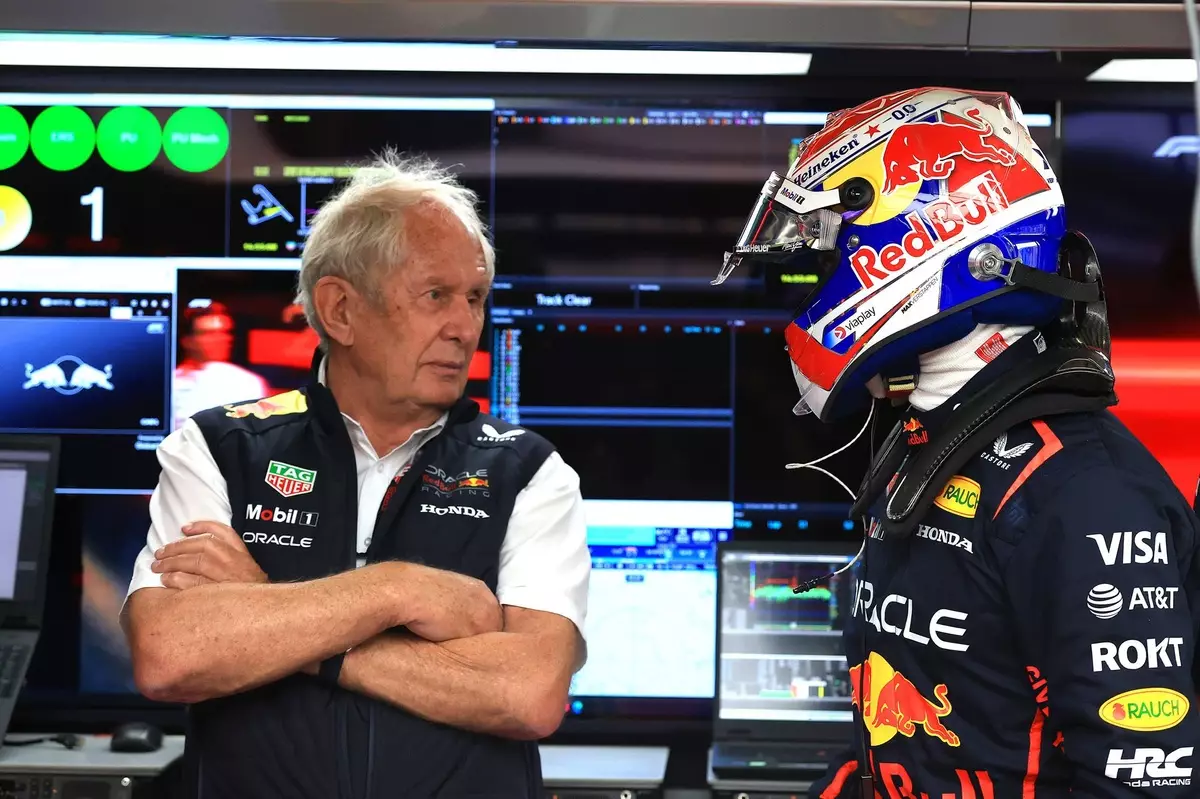In the high-stakes world of Formula 1, few emotions can rival the intensity experienced during a race. The Spanish Grand Prix showcased this perfectly, particularly through the lens of Red Bull’s advisor, Helmut Marko. His recent comments on the fraught final laps have stirred both admiration and concern for Max Verstappen, the team’s leading driver. It was indeed a remarkable moment when Verstappen’s race imploded, prompting Marko to reflect on the bewildering decisions made by his star athlete.
The final laps of the race saw Verstappen lose his place to Charles Leclerc following a safety car restart, a seemingly critical inflection point that sent him spiraling into a series of unfortunate maneuvers. This kind of emotional upheaval is not new to athletes, but seeing it unfold in such high definition at this level demonstrates that even seasoned champions can succumb to pressure, a theme that transcends motorsports and speaks to the human condition.
The Intricacies of Decision Making Under Pressure
Marko’s perplexity doesn’t stem merely from Verstappen’s on-track performance but from the underlying choices the driver made in response to adversity. Upon being overtaken by Leclerc, Verstappen’s immediate reactions highlighted a blend of frustration and instinct that often defines competitive racing. Marko noted an incident that escalated with George Russell, suggesting that Verstappen’s sense of fairness—a driver’s instinct based on the stringent regulations of the sport—was cast aside in a moment of passion.
Every driver knows the risks tied to a safety car restart, yet Verstappen’s crash course into regulatory boundaries might be seen as emblematic of a broader struggle many athletes face. The internal dialogue—whether to uphold one’s integrity or seize an opportunity at all costs—is remarkably complex and often fraught with consequences. Marko’s commentary suggests that Verstappen understands the rules intimately; however, emotional turbulence can cloud even the sharpest minds.
Calculated Risks and Misjudgments
As Marko recounted, Verstappen’s conflicted behavior during the race led to a cascade of potential penalties. The decision to not relinquish his position willingly, despite having been instructed to do so, underscores the grit that has characterized Verstappen throughout his career. Yet it also raises questions about judgment under duress; why did Verstappen momentarily lift off the throttle only to accelerate again? This behavior confounds both spectators and analysts alike. It evokes a deeper question that transcends racing: how do personal emotions intersect with professional obligation in moments when every second counts?
Verstappen’s subsequent apology reflected the weight of his actions. While it is commendable for a public figure to address mistakes directly, it also illuminates an essential aspect of competing at this level—recognition of accountability intertwined with the passion of the sport. The potent mix of competitiveness and humility can be a delicate balancing act, especially when you’re dealing with other highly skilled individuals all aiming for success.
The Impact of Emotion in Competitive Sports
The exchange between Verstappen and Russell gives us valuable insight into how rivalries can spiral out of control when emotions run high. Marko’s observations about their tumultuous history add depth to the context surrounding their latest incident. Throughout the race, Verstappen’s emotional intensity may well have compromised his decision-making abilities, resulting in actions that not only jeopardized his performance but also heightened tensions between teams.
However, it’s essential to recognize that Verstappen’s journey as a driver involves confronting the duality of his passion for racing and the responsibilities of sportsmanship. The contentious interactions and aftermath of this race will undoubtedly shape his future approach—perhaps steering him toward a more disciplined interpretation of competition. The self-awareness gleaned from such experiences could serve him well as he navigates the high-wire act of professional racing in an era defined by speed, strategy, and scrutiny.
In the end, racing is as much about the fight within oneself as it is about the battle against opponents on the track. The emotional revelations from Verstappen’s ordeal can offer broader lessons not just for athletes, but for anyone grappling with challenges in their respective arenas—whether they be in sports, business, or life itself.


Leave a Reply